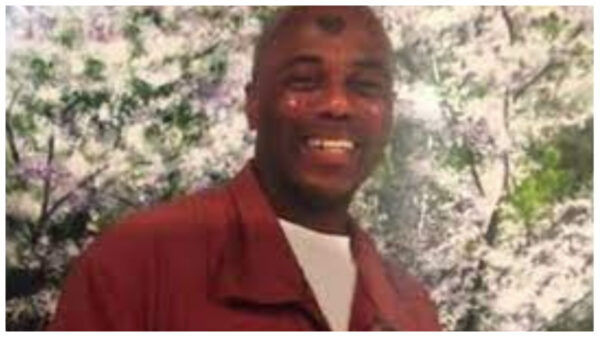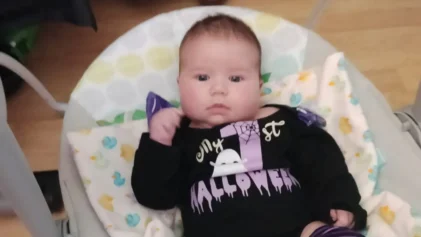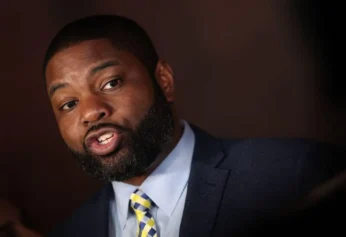Less than two years after being exonerated, Christopher Williams, a man who served nearly three decades on Pennsylvania death row, was shot and killed while attending a funeral. His death has alarmed other men who’ve been exonerated and believe they have a scarlet letter on their person, some saying, “although we’re actually innocent, not everyone believes it.”

On Friday, Dec. 16, Williams attended the funeral in North Philadelphia for Tyree Little, another formerly incarcerated man. The 62-year-old was driving in the burial processional to the Mount Peace Cemetery, and around 2:20 pm, he was shot execution-style immediately after exiting his car.
Williams was shot in the head, the Philadelphia Inquirer reports.
Police reports say he was taken to Temple University Hospital at 2:27 pm and was pronounced dead less than half an hour later.
The killing ended the life of someone who had worked so hard to gain his freedom back.
After his exoneration Williams told reporters he made history by becoming the first person in Pennsylvania history to “have been charged with six murders, acquitted of two and now exonerated of four.”
Williams’ co-defendant, who was exonerated after spending almost 28 years in prison, said despite the judge ruling to free them, people still don’t believe they are innocent.
Theophalis “Bilal” Wilson said he grew up with Williams in the Germantown section of Philadelphia, and that was enough for the prosecution to attach him to the killing of three New York drug dealers, a crime they had charged Williams with.
“I spent 28 years in jail for knowing him, I have to be on guard,” Wilson said.
Williams was convicted of a triple murder and the killing of Michael Haynesworth. Both murders occurred in 1989.
In 1992, Williams and co-defendant Troy Coulston were convicted of Haynesworth’s murder, and in 1993, Williams and Wilson were convicted of the drug dealer killings.
Officials dismissed all four of the cases after the current District Attorney’s Conviction Integrity Unit discovered in both cases flawed testimony and exculpatory evidence that was never shared with any of Williams or his co-defendants’ lawyers.
He was released in February 2021. He was 29 when he went to prison and 61 when he gained his freedom.
The lawyer who worked to help him gain his freedom, Stuart Lev, called his client’s recent slaying “incredibly tragic.”
“This guy went through decades in prison, 25 years on death row, for crimes that he did not commit, because the system failed,” Lev said to NBC News.
Williams’ attorney continued, “He kept fighting, and he wouldn’t give up. He just kept insisting that he keep trying different ways of fighting. Whether that was to keep his hopes up or that was just his own determination and perseverance, that’s what he did. He worked very hard with his lawyers to make sure his lawyers kept doing that, too.”
Jane Roh, the Philadelphia District Attorney Larry Krasner’s communications director, echoed the lawyer’s sentiments, calling the slaying “tragic.”
“What Chris endured as a twice-wrongfully convicted exoneree is unfathomable,” Roh said in a statement. “And that his short-lived freedom was marked by struggle, as Pennsylvania is one of 12 states in the U.S. that does not compensate the wrongfully convicted, is unconscionable.”
While Pennsylvania does not offer compensation for people wrongfully convicted that served time for crimes they didn’t commit, Philadelphia has settled with some exonerees who have served 25 years or more in prison. The city has paid out almost $10 million apiece to these few men as a public acknowledgment of the pain and suffering to them and their families caused by their incarceration.
In December 2021, Williams filed a multi-million lawsuit that names the city, the Philadelphia Police Department, Philadelphia District Attorney’s Office, as well as 17 police detectives or their estates, two former assistant district attorneys, and former district attorney Lynne Abraham as defendants.
This case is still pending.
Since his exoneration, Williams had spent almost two years working as a carpenter in the construction industry. He also was committed to making meaningful bonds with relatives.
His son Christopher Hartwell said that was nothing new, explaining that even while locked up on death row and being denied in-person visits from loved ones, Williams tried hard to maintain relationships.
“He was the man of the family even when he wasn’t here when he was in jail,” Hartwell said.
“He touched everybody he talked to,” Hartwell added. “Speaking of the year and eight months I had him out here, he taught me how to be a better man. He helped me be a better father myself.”
When not on the job or trying to reconnect with his family after a quarter of a century of being away, he advocated for others who may have been wrongfully convicted.
“He was a soldier, a trooper, a champion for justice,” Terrance Lewis, another recently exonerated man, told the Inquirer. “He was still learning how to give back. His life just began, and it was taken from him.”
Williams is survived by six children and multiple grandchildren and great-grandchildren.
Police have no suspects in the slaying.


